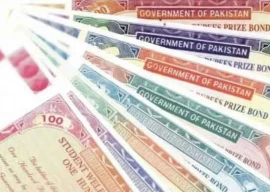
The calculations, made in the brokerage house’s report, are based on a sample of the top nine listed textile-exporting companies (composite mills).
“Our understanding suggests that if the euro dollar parity remains the same, earnings of the sample companies would decline by 10-15%,” the report said.
The report added that currency depreciation may have an impact on new contracts, which in return, affect volumetric sales. However, the falling oil prices may result in a lower cost of production, slightly neutralising the effect of currency depreciation, it added.
“Yes, the falling euro has affected our exports in Europe during the last few months,” Multinational Export Bureau CEO Babar Khan told The Express Tribune.
Khan exports most of its knitwear to the European Union (EU) and he is among those who have been benefitted recently from EU’s Generalised System of Preferences (GSP) Plus scheme. Since the GSP Plus scheme came into effect in January 2014, most of the garment exporters of Pakistan have seen a 10%-35% growth in exports to the EU.
“The falling euro against the dollar and the rupee, delayed winter season and long recession in Europe are all contributing to the decline in orders from the EU countries,” said Khan, “And, I do not see any improvement in exports in coming months.”
With global demand expected to slow down, there are growing concerns in eurozone over uncertainty regarding political developments in Greece and prospects of European Central Bank (ECB) taking action to increase stimulus in the economy amid concerns over deflation.

All these challenges have brought the euro to 11-year low against the dollar. Moreover, the euro is down 5% compared to the dollar (5% down compared to the rupee) since the beginning of 2015 and down 10% versus the dollar (11% against the rupee) in the last three months.
Pakistan is likely to be affected due to the falling euro as it may affect Pakistan’s textile exports to the EU. Pakistan’s annual exports in fiscal year 2013-14 were $25 billion out of which roughly one third were to Europe. Thus, there is an imminent risk that the benefit of GSP Plus scheme may not fully materialise until the currency crisis settles down, the report said.
The GSP Plus scheme has been proving beneficial for Pakistan at a time when its overall exports are facing serious challenges. Pakistan’s exports to the EU crossed $5.7 billion, up 16% or $910 million with its exports to the EU during the first nine months (Jan-Sep) 2014, according to Eurostat – the EU’s data collection agency.
Published in The Express Tribune, January 20th, 2015.
Like Business on Facebook, follow @TribuneBiz on Twitter to stay informed and join in the conversation.









1732486769-0/image-(8)1732486769-0-270x192.webp)







COMMENTS
Comments are moderated and generally will be posted if they are on-topic and not abusive.
For more information, please see our Comments FAQ